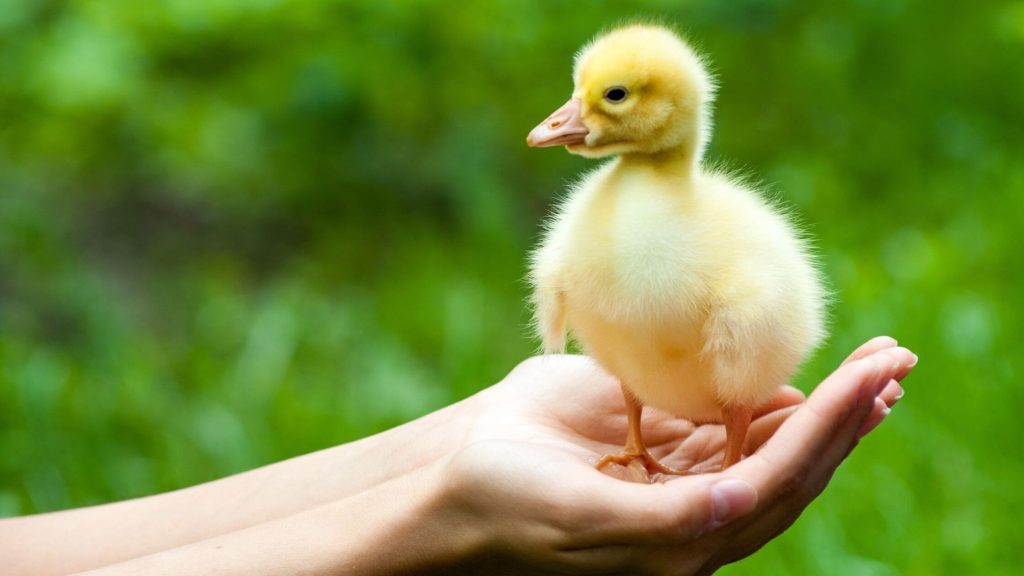
When people think of pets, dogs and cats might immediately spring to mind but delve a little deeper into the world of domestic pets, and you’ll discover the delightful and sometimes astonishing realm of pet ducks. Unlike their canine and feline counterparts, ducks offer a unique set of characteristics, intriguing behaviors, and care requirements that fascinate and engage their owners deeply. Consider, for instance, the Muscovy ducks and many others, blessed with a nictitating membrane, a secondary eyelid, akin to what cats possess. This see-through eyelid operates uniquely, closing from front to back, allowing ducks to forage underwater while protecting their eyes—a testament to their adaptability and aquatic lifestyle.
But the care of these charming creatures goes beyond fascinating anatomical features. Nutrition presents a realm where the needs of domestic ducks diverge significantly from commercial flocks, an aspect often overlooked but crucial for their wellbeing. Meanwhile, elements like enclosure security and health management, including the judicious use of medications, require thoughtful consideration to ensure a safe and fulfilling life for these feathered friends. With evolving dietary solutions from companies like Mazuri aimed at enhancing waterfowl’s long-term health, the paradigm of pet duck nutrition and care is experiencing a welcome shift.
But what does it truly take to cater to the needs of these distinctive pets, ensuring they lead healthy, happy lives under the care of devoted owners? Let’s delve into the essentials of pet duck care, nutrition, and safety.
Frequently Asked Questions about Pet Ducks
Domestic ducks carry a unique set of requirements for their care. They are not only engaging and pleasant pets but also demand specific attention regarding their diet, habitat, and interaction with humans. Understanding these needs is crucial for anyone considering ducks as pets.
Can Ducks be Pets?
Yes, ducks can be delightful pets. They are known for their friendly nature and can form strong bonds with their human caretakers. However, potential owners need to consider space, time, and resources needed to properly care for them.
First off, space: Ducks love to roam, dabble in water, and explore. A spacious yard with a safe, predator-proof area is ideal. And don’t forget a pond or a sizable water container for them to splash in – it’s essential for their happiness and hygiene.
Time commitment is another factor. Ducks are social animals and thrive on interaction. Whether it’s feeding time, cleaning their space, or just hanging out, your duck pals will need regular attention. Plus, they live up to 10 years or more, so it’s a long-term commitment.
Lastly, let’s talk resources. Ducks need a balanced diet – not just bread crumbs! A mix of duck feed, veggies, and occasional treats will keep them healthy. Also, consider the vet bills for regular check-ups and any unexpected health issues.
Are They Dangerous?
Ducks are generally peaceful and sociable, making them great companions rather than a threat. They’re more likely to quack up a storm or follow you around expectantly for treats than cause any harm.
However, like any animal, ducks need to be handled with care and respect. It’s important to understand their behavior and body language. Ducks can sometimes nip or peck, especially if they feel threatened or are protecting their territory. This is more about communication than aggression. Teaching children how to interact gently and respectfully with ducks is key to avoiding any unintended nips.
Also, remember that ducks, especially males during breeding season, can sometimes show assertive behavior. But with proper socialization and care, these instances are usually minimal.
Can You Own a Duck?
In most places, having ducks as pets is A-OK. However, some areas might have specific rules about keeping livestock or poultry in residential areas. Why? Well, these rules are often in place to ensure the animals are well cared for and don’t become a nuisance to neighbors (nobody wants a 6 AM quacking wake-up call!).
Your first step should be to check with your local government or zoning office. They can tell you if there are any restrictions or special requirements for duck ownership in your area. This could include things like permits, limitations on the number of ducks you can have, or specific housing conditions.
Are Ducks Friendly to People?
Ever wonder if ducks can be as friendly as dogs or cats? The answer is a resounding quack—yes! Ducks can be incredibly sociable and affectionate towards humans. The secret? Gentle and regular handling from a young age.
When you raise ducks with kindness and consistency, they learn to trust and bond with you. It’s not uncommon for pet ducks to seek out human company, follow you around like a fluffy entourage, or even enjoy a cuddle. Imagine sitting in your yard with a duck happily nestled in your lap – it’s quite the serene picture!
This friendliness is especially noticeable in ducks that are hand-raised from ducklings. They get used to human interaction and become comfortable being around people. Just like any pet, the more love and attention you give them, the more they return the affection.
Are Ducks Loving?
Ducks can be surprisingly loving and bond deeply with their human families. These feathered friends have a unique way of showing their affection, and understanding their behavior can reveal just how endearing they can be.
Ducks often express their fondness through gentle nibbles, following their favorite humans around, and even quacking softly in their presence. While they might not purr or wag their tails like cats and dogs, they have their own special way of saying, “You’re part of my flock.”
Additionally, ducks can recognize and remember their human caregivers, responding enthusiastically to their presence. This recognition is a sign of trust and affection developed over time. So, if you’re looking for a pet that offers a different kind of loving relationship, a duck might just be your perfect match. With their charming ways and quirky personalities, ducks can form a loving bond that’s truly one of a kind.
Can You House Train a Duck?
While ducks can be incredibly smart and adaptable, house training them in the same way you would a dog or a cat can be quite a challenge. Ducks don’t have the same control over their bodily functions as some other pets, making traditional house training a bit tricky.
However, don’t let this dampen your spirits! Many duck owners use creative solutions to manage this aspect of duck care. One popular method is using ‘duck diapers’ or ‘duck pants’. These specially designed garments fit around the duck’s body, catching any mess before it hits your floor. It’s a quirky but effective solution for keeping your house clean while your feathered friend waddles around indoors.
It’s important to remember that ducks are naturally outdoor animals, so they thrive best with plenty of space to roam, forage, and swim. While occasional indoor time is fine, especially if they’re diapered, their primary habitat should be a safe, spacious outdoor area.
While you can’t house train a duck in the traditional sense, there are ways to manage and enjoy their indoor presence. Just be prepared for a little extra work and lots of laughs along the way!
Will Pet Ducks Fly Away?
Most domesticated duck breeds don’t have a strong instinct or even the ability to fly long distances, especially the larger breeds like Pekins or Rouens.
These domestic ducks are generally too heavy and not as adept at flying compared to their wild counterparts. They might manage a short flutter or hop, especially when excited or spooked, but they’re not taking off for a migratory journey anytime soon.
However, smaller breeds or those closer to their wild relatives, like Mallards or Call ducks, might be more capable of flight. To prevent any unexpected take-offs, some duck owners choose to clip the flight feathers on their ducks’ wings. This is a painless process that helps keep them safely grounded. It’s important to do this correctly, or better yet, have it done by a professional, such as a vet or an experienced bird handler.
Creating a safe and enticing environment for your ducks can also encourage them to stay put. A comfortable shelter, regular feeding, a water source for swimming, and protection from predators make your backyard a much more appealing option than the wild blue yonder.
The risk of pet ducks flying away is generally low, especially with larger domestic breeds but taking precautions with smaller or more flight-capable breeds is a good idea. With the right care and environment, your ducks will likely be content to stay close to home.
What Do Ducks Eat?
In the wild, ducks are omnivores and enjoy a varied diet. This includes small fish, insects, aquatic plants, and seeds. For domestic ducks, their diet isn’t too different, but it’s a bit more controlled to ensure they get all the necessary nutrients.
A good base for their diet is commercial duck feed, which is formulated to provide a balanced mix of protein, carbohydrates, vitamins, and minerals. This should be the mainstay of their diet.
In addition to commercial feed, ducks love to snack on leafy greens like lettuce, spinach, and kale. They also enjoy vegetables like cucumbers, peas, and corn. Fruits can be a tasty treat too, but should be given in moderation due to their high sugar content. Foods like berries, melon, and chopped apples are great options.
It’s important to avoid feeding ducks bread. It might seem like a classic choice, but bread offers little nutritional value and can lead to health problems.
Lastly, always ensure they have access to clean, fresh water. Not only do they need it for drinking, but ducks also use water to help swallow their food.
What Kind of Shelter Does a Pet Duck Need?
When it comes to housing our feathered friends, ducks don’t require a luxurious mansion, but they do need a comfortable, safe space to call home. Providing the right kind of shelter for your ducks is crucial for their well-being. So, what makes the perfect duck abode?
First and foremost, ducks need protection from the elements and predators. A good duck shelter, often called a duck coop or dog house house, should be sturdy, weather-proof, and predator-proof. It should shield them from rain, wind, and extreme temperatures, while also keeping out foxes, raccoons, and other potential threats.
The size of the shelter depends on how many ducks you have. As a general rule, plan for about 3 to 4 square feet per duck inside the coop. Ducks don’t roost like chickens, so they’ll be happy with a clean, dry floor covered with straw or shavings.
Ventilation is also key. Ducks can create a lot of moisture with their breathing and their love for water, so ensuring good air flow will help keep their living space dry and comfortable.
Don’t forget about a secure outdoor space! Ducks love to explore and forage during the day. A fenced area or run attached to the coop is ideal. This should give them enough room to waddle, bathe, and indulge in their natural behaviors, with access to a pond or water container for them to swim in.
Lastly, cleanliness is crucial. Regular cleaning of the coop and changing of bedding will help keep your ducks healthy and prevent diseases.
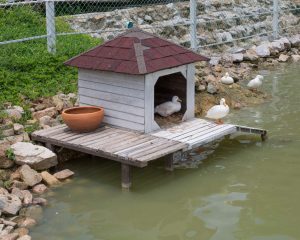

How Much Does a Pet Duck Cost?
The initial cost of buying a duckling is quite affordable, often ranging from $5 to $20 depending on the breed. But that’s just the start. Here’s a breakdown of the other costs you’ll need to consider:
- Housing: Setting up a duck-friendly space is crucial. A good quality duck coop or enclosure can cost anywhere from $200 to $500. Add a pond or a large water container, and you might be looking at an additional $100 to $300, depending on the size and complexity.
- Food: Ducks eat a mix of grains, greens, and proteins. A bag of high-quality duck feed like Mazuri can cost around $30 to $50 and will last varying lengths of time depending on the number of ducks. Remember, this is a recurring cost!
- Healthcare: Regular vet check-ups and any necessary treatments can add up. Setting aside $100 to $200 annually for basic healthcare is a good idea, although this can vary based on local vet costs and the duck’s health.
So, while the initial cost of a duck is low, setting up and maintaining a healthy, happy home for your feathered friend can be an investment. You might be looking at an initial setup cost of around $300 to $800, plus ongoing expenses for food and healthcare.
Pros and Cons of Pet Ducks
Let’s flap into the delightful upsides and the practical downsides of getting a pet deck ensuring you make an informed decision that’s best for both you and your potential web-footed companions.
| Pros | Cons |
|---|---|
| Unique Pets | Space Requirements |
| Friendly and Sociable | Need for Proper Fencing |
| Health Benefits from Mazuri Food | Cost of Care and Nutrition |
| See-Through Nictitating Membrane | Medication Residue Concerns |
| No Need for Wing Clipping | Legal Restrictions |
| Omnivorous Diet | Specialized Health Care Needs |
Choosing the Right Duck Breed for You
Ever thought about getting a duck as a pet? Well, you’re in for a treat! Ducks are not just adorable, but they also come with their own unique personalities. Here are some top duck breeds that are perfect for becoming part of your family:
- Pekin Ducks: The Friendly Giants Meet the Pekins, the gentle giants of the duck world! These large, white beauties are known for their calm and friendly nature, making them perfect for families. Bonus: they’re also pretty good at laying eggs, so you might just find some fresh goodies in your backyard.
- Khaki Campbell Ducks: The Egg-laying Superstars If you’re looking for an eggstraordinary layer, say hello to the Khaki Campbells. These ducks are egg-laying machines, producing up to 300 eggs a year! They’re a bit more on the active side and smaller than Pekins, but they’re great if you’re into urban farming.
- Indian Runner Ducks: The Quirky Characters Indian Runners are like the comedians of the duck world. They stand tall and upright, like little feathery penguins, and are always on the move. Great for pest control in your garden, these ducks are less about cuddling and more about entertaining with their quirky antics.
- Mallard Ducks: The Wild at Heart Fancy taming a bit of the wild? Mallards, the ancestors of most domestic ducks, can actually make great pets. They’re on the smaller side and might take a bit of patience to tame, but their beautiful plumage and unique personalities make it all worthwhile.
- Cayuga Ducks: The Shimmering Beauties Cayugas are like the sparkling gems of the duck world, with their iridescent black feathers shimmering in the sunlight. Not just pretty to look at, they’re also known for their calm and quiet demeanor. They’re decent layers and can adapt well to different environments.
- Rouen Ducks: The Gentle Lookalikes Rouens are often mistaken for Mallards, thanks to their similar looks, but they’re much larger and friendlier. While they’re not the best layers, their docile and affectionate nature makes them fantastic pets, especially for those new to duck parenting.
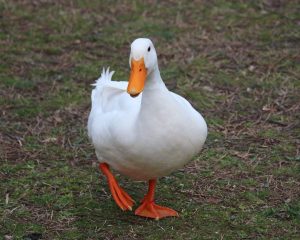
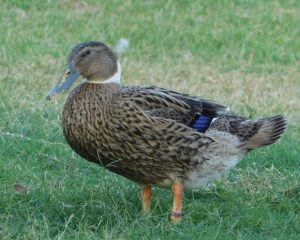
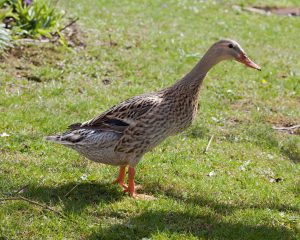
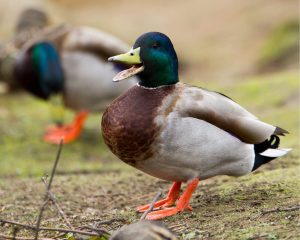
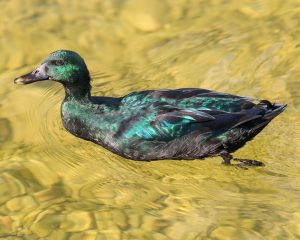
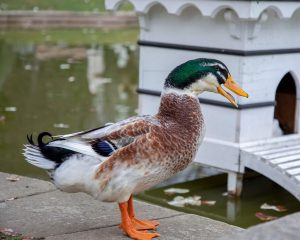
Fun Facts About Ducks
From their quirky behaviors to surprising abilities, ducks are more than just cute and cuddly – they’re fascinating creatures with a few tricks up their feathers. Whether you’re a seasoned duck enthusiast or just curious about these adorable animals, these fun facts about pet ducks are sure to ruffle your feathers in the best way possible. Let’s waddle through some amazing tidbits that highlight why ducks are truly one-of-a-kind pets
| Fact Category | Fun Fact |
|---|---|
| Speech Skills | Ducks can mimic sounds, a bit like parrots, but they’re not as proficient. |
| Sleep Habits | Ducks sleep with one eye open to keep watch for predators. |
| Emotional Display | Ducks can show affection and excitement, often wagging their tails like dogs. |
| Memory | Ducks have great memories, recognizing human friends and locations. |
| Waterproofing | A special gland near their tail produces oil to keep their feathers waterproof. |
| Feather Change | Ducks molt and grow new feathers every year, sometimes changing color. |
| Temperature Control | They regulate their body temperature with their feet, which don’t have nerves or blood vessels to feel cold. |
| Egg Colors | Depending on the breed, ducks can lay eggs in different colors, like blue or green. |
| Swimming | Ducklings can swim and dive underwater from just a few hours old. |
| Land vs Water | Despite loving water, ducks spend a lot of time on land and can walk quite well. |
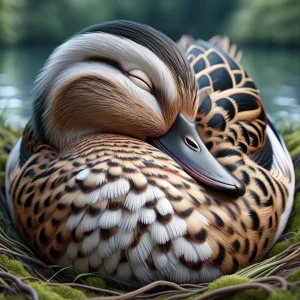
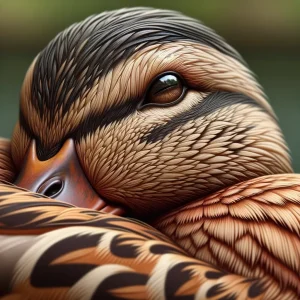
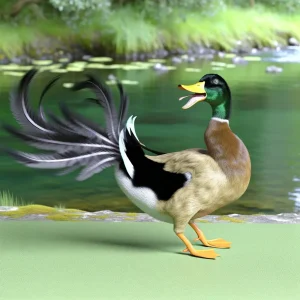
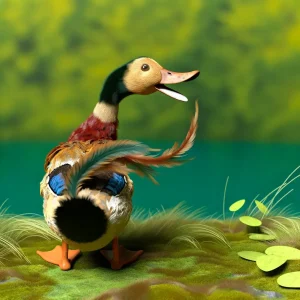


Beginner Guide to Raising Quail at Home
What are the Signs of a Dog Concussion?
What Causes Your Dog’s Ears to Smell Bad?
When your dog’s ears start to emit an unpleasant odor, it might leave you puzzled…
Methimazole Treatment for Cat Hyperthyroidism
Methimazole plays a crucial role in managing feline hyperthyroidism, a condition marked by an overactive…
Got Hummingbirds in your Backyard? Here’s How to Care for Them.
Why Does Your Cat Pee Outside the Litter Box?
Cat’s Litter Box Issues It’s not uncommon for cat owners to face the frustrating dilemma…




